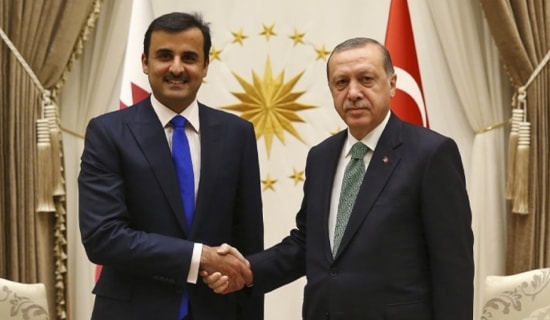The Middle East Media Research Institute (MEMRI) launched www.memrieconomicblog.org on July 9. As stated by its editor, the purpose of the Blog is to offer the reader updates on, and occasional in-depth analyses of, economic events in the Middle East, which are often overshadowed by pressing political events.
Thus far, the Blog has looked primarily at four concerns: (a) economic policies; (b) the issues of energy; (c) Islamic banking; and (d) mergers and acquisitions.
(a) Economic Policies
Most countries in the Middle East are moving away from centralized economies and into economies that are more open, competitive and market-oriented. Some are taking bold and deliberate moves in that direction. We are even beginning to see some normative changes in the policies toward sectors that were traditionally dominated by government monopolies, such as telecommunications and, in some instances, air travel. Almost all wireless telecommunications industries are now owned by the private sector. The banking sector is going in the same direction—in some countries, irretrievably so. In addition, trade policies are being liberalized, the investment climate across the region is becoming increasingly hospitable, and controls over foreign currency transactions are rapidly falling.
A senior official of an international financial institution met the late president of Syria, Hafez al-Assad in the 1980s. It is said that the official told the president that the Syrian economy needed fresh air. He suggested that Syria follow the Chinese model, opening the windows a little bit to let in some fresh breezes while keeping the political system unchanged. Assad is reputed to have answered, “But do you know what happened in China? According to Deng [the late leader/reformer of modern China], when China opened the windows two large flies got in: one was greed and the other was anarchy.” This was long ago. Today, even Syria under Bashar, Hafez al-Assad’s son, the last of the centralized socialist economies in the Middle East, is taking at least hesitant steps toward liberalizing the economy by licensing foreign banks to operate in the country and by removing some of the strictest controls over foreign exchange.
(b) Energy Issues
Oil and gas drive the industrial engines of countries. They generate electricity and power all means of transportation—on land, on sea, and in the air. There is not a single country on this planet, whether it is supplier or consumer of oil and gas, that it is not affected by their availability and pricing/cost. The simplest threat to the sources of supply is sufficient to cause enormous concerns and could even derail well-thought-out economic policies overnight.
The issue of oil per se is of interest to almost every consumer – the cost to fill up one’s car often determines how much disposable income one has for other needs. Hence, OPEC’s policies on levels of production of crude oil and its pricing are of paramount interest, and we will always give them high priority in our coverage.
The same applies to natural gas and LNG. In this regard, we should pay attention to related issues such as oil and gas pipelines, oil and gas terminals and transboundary pipelines. Often these pipelines have strategic significance for the countries concerned and beyond.
Years ago, the International Monetary Fund referred to the “oil curse” – the squandering of oil revenues on showcase projects and shopping sprees rather than on the laying of foundations for a strong economic base or addressing the needs of the poor. It appears that the lessons of the past have been learned, and the “oil curse” is rapidly turning into an oil blessing. Indeed, the rapid pace of development in countries like Qatar and United Arab Emirates, which we visited earlier this year, is breathtaking.
(c) Islamic Banking
The last two decades have seen a mushrooming of Islamic banks – institutions practicing a banking system – Islamic banking – which is consistent with shari'a (Islamic law) and guided by Islamic economics. The heart of the system is the prohibition of charging or paying riba (interest or usury). The argument against riba is that money is not "goods" and that profit should be earned on goods and services only—not on the control of money itself (i.e. return on assets). Alternatives are used such as sukuk (Islamic bonds) and murabaha (profit sharing). An article on the subject was published on the Blog on August 20.
Generally, shari'a prohibits trading in financial risk (gharar), as doing so is seen as a form of gambling. Moreover, shari'a prohibits investing in businesses that are considered haram (not religiously permitted, in contrast to halal, which means religiously permitted). Haram businesses are those that sell alcohol or pork, or businesses that are engaged in gambling or produce un-Islamic media.
Islamic banking institutions worldwide have grown at a remarkable pace since the inception of the first such institution in Malaysia three decades ago. According to a study by the International Monetary Fund, the number of Islamic institutions rose from 75 in 1975 to over 300 in 2005, in more than 75 countries. Total assets worldwide are estimated at $250 billion, growing at about 15 percent per annum.
Islamic banking is likely to grow steadily for two reasons: First, there is a growing Muslim population in Western Europe that is seeking to assert its identity through Islamic banking. Second, secularism appears to be on the wane in most Middle Eastern countries; religiosity is on the rise everywhere and believers are reaching out for anything that would appear to provide a religious context to their existence.
(d) Mergers and Acquisitions
The massive increase in oil revenues in most of the six members of the Gulf Cooperation Council (GCC) –Saudi Arabia, United Arab Emirates, Qatar, Bahrain, Oman and Kuwait – has created unprecedented opportunities for the building of infrastructure and the provision of social services and, at the same time, for investments overseas.
These investments have been channeled through two principal pipelines – acquisition of assets and the purchase of shares in high quality financial and industrial firms. According to the London daily al-Sharq al-Awsat of August 13, 2007, the Gulf countries have channeled $140 billion for overseas investments in the last three years. In a relatively short time, some of the Gulf countries have become respectable actors on the international financial scene. We expect more of the same in the future, and shall be covering the trend on The MEMRI Economic Blog.
If there is one conclusion to be drawn from all of this, it is that economic realities and the drive to integrate into the world economy are driving away political slogans.
We continue to welcome comments and suggestions from our readers, and would like to hear from you, in English or Arabic. Please write to economiceditor@memri.org.
Nimrod Raphaeli, Editor
To subscribe to the MEMRI Economic Blog, send an email to economiceditor@memri.org with the subject line: Subscribe. You may also subscribe directly from the www.memrieconomicblog.org.




